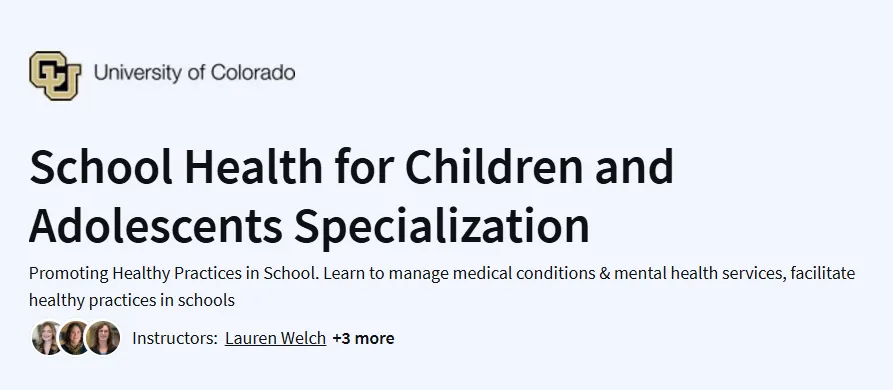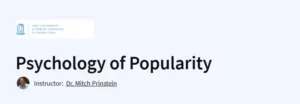What you will learn in School Health for Children and Adolescents Specialization Course
Manage common medical conditions in students, including asthma, allergies, diabetes, and seizures.
Support students with behavioral and developmental disorders such as ADHD, autism, learning disabilities, and concussions.
- Implement social, emotional, and special education services to foster a supportive learning environment.
- Promote healthy practices like nutrition, physical activity, and community and family involvement within schools.
Program Overview
Managing Asthma, Allergies, Diabetes, and Seizures in School
⏱️14 hours
Learn to manage common medical conditions in students.
Understand the role of school staff in supporting affected students.
Develop emergency response plans and promote overall student health.
Managing ADHD, Autism, Learning Disabilities, and Concussion in School
⏱️9 hours
Gain insights into developmental and behavioral disorders.
Learn strategies to support students with these conditions.
Understand the diagnosis process and management options.
Providing Social, Emotional, Behavioral, and Special Education Services in School
⏱️ 11 hours
Explore the relationship between mental health, learning, and behavior.
Learn to implement school-wide activities to support students.
Identify strategies for students at risk and interventions for those with significant needs.
Healthy Practices: Nutrition, Physical Activity, and Community and Family Participation
⏱️9 hours
Understand the importance of nutrition and physical activity in schools.
Learn about regulatory programs supporting healthy students.
Explore ways to engage families and communities in promoting student health.
Get certificate
Job Outlook
Professionals trained in school health are in demand across various educational settings. Key skills include:
Knowledge of managing medical and behavioral conditions in students.
Ability to implement health and wellness programs in schools.
Understanding of special education services and inclusive practices.
Explore More Learning Paths
Enhance your expertise in child and adolescent health with these focused programs designed to support well-being, development, and educational success.
Related Courses
Introduction to Child Psychology: Accredited Certificate Course – Understand the cognitive, emotional, and social development of children to better support their health and learning.
Related Reading
Gain deeper insight into health management and care strategies for children and adolescents:
What Is Case Management? – Learn how structured case management ensures effective support and interventions for children’s health and well-being.
Specification: School Health for Children and Adolescents Specialization Course
|
FAQs
- Covers physical, mental, and social health needs of children and teens.
- Focuses on nutrition, physical activity, and emotional well-being.
- Teaches approaches for promoting healthy behaviors in schools.
- Emphasizes prevention of common health issues among students.
- Open to anyone interested in child and adolescent health.
- No prior healthcare or teaching degree needed.
- Designed for teachers, school staff, and community workers.
- Also suitable for parents or caregivers who want health knowledge.
- Child and adolescent development stages.
- Nutrition and healthy eating habits for students.
- Physical activity programs and their benefits.
- Mental health support and preventing risky behaviors.
- Design school programs that encourage healthier habits.
- Support children in developing lifelong positive health behaviors.
- Recognize and address early signs of health issues.
- Help schools create safer and more supportive environments.
- Teachers and school administrators.
- Public health and healthcare professionals.
- Parents and caregivers of children and adolescents.
- Community workers focusing on youth development.





